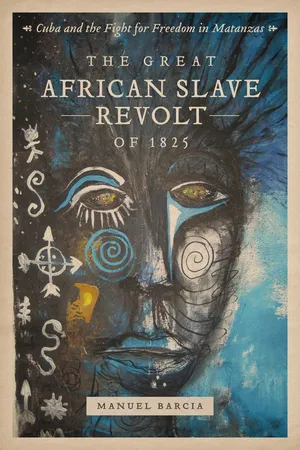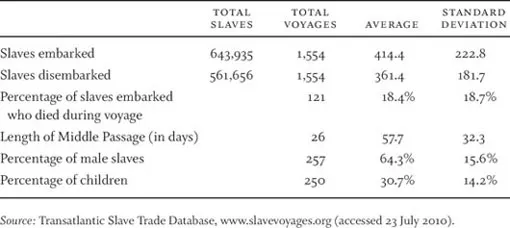![]()
Appendix 1
Slave Imports to Cuba from African Ports, 1817–1866
![]()
Appendix 2
RULES FOR THE RESIDENCE OF NEW COLONISTS AND AIDS TO BE PROVIDED
Havanah the 6th of March 1818. His Excellency the Governor Captain General, and Honorable the Intendant General of this Island, pursuing the examination of the measures best adapted to the important object charged in the Royal order in Council of the 21st October ult.o; and having seen the reports and propositions of the Committee on this subject; have determined.
1.st In order to facilitate the means of domiciliating the new Colonists there shall be appointed well known inhabitants of probity and good name, to act as protectors and Patrons of those of each Nation severally to be applied to, on their arrival, to give proof of their qualifications and circumstances, in order to be reported to the Government, and to proceed in such measures as their cases may require.
2.d The qualifications required are principally that the individuals presenting themselves, being foreigners do profess the Roman Catholic Religion, and produce their certificate of Baptism or other legal documents, which the Patrons shall cause to be translated and duly attested. In case such proofs are not produced, the Patrons will form their opinion from reasonable inductions derived from recommendations by well known persons, and an examination of their moral conduct. The Patrons shall report in writing to the Government those applicants whom they have ascertained to posess the qualifications required in the Royal order; and they shall personally introduce them to the Government’s office, in order to take the oath prescribed by the 2.d article: after which a letter of domiciliation will be granted to them, in a printed form, without any fee or other expence to the party agreeably to the 14.th article.
3.d The want of the proofs of Catholicism above mentioned shall be noted in the letter of domiciliation: and the term of two years given for obtaining them, in which case the Patrons will give their assistance in procuring the same. During the time stipulated the Judge and Curate of the place where the person may reside are required to observe their moral conduct and to report accordingly. If at the expiration of the said term of two years any one be unable to prove that he professes our Holy Religion, he shall be deprived of his letter of domiciliation and be considered as a transient person, and as such be compelled to quit this Island in the space of three months agreeably to the 28.th article of the Royal order.
4.th Having obtained from Government the letter of domiciliation the Colonist will have a right to the following assistance viz: Three rials (1 s. 9 d. sterl.) per day for each head of a family and half of this stipend for each one of his children during the space of two months. The like sum of three rials per day and for the same space of time will be allowed to single persons being agriculturists or artizans; also a house and lodging in the town or village in the interior which may be asigned to them, or in the country houses which hey may be directed to, of such Planters as have generously offered, or may offer their aid to this desirable service. Hospital and medical assistance will be granted if any falls sick within the above mentioned time. Charges of transporting themselves by land will also be paid at the rate of one dollar per league to heads of families, and a half dollar to each of their children; if it be convenient that the removal should be made by sea it will remain with the commissioners of Government to fix the allowance. Let it be understood that these aids will be granted to the new colonists which may come to this Island within the space of four years beginning from May next, at the end of which time it will cease, or the commissioners will propose what they should think proper, according to the circumstances.
5.th For the preservation of health of said colonists and for other physical and economic reasons, they shall not remain in this city or its suburbs, longer than the necessary time for obtaining their letter of domiciliation; after which they shall be immediately conducted to the neighbouring towns viz: Guanabacoa, Güines, Matanzas and Guanajay. The Commissioners of Government shall take charge of their distribution and provide beforehand lodgings and other assistance for them, and transport without delay those that are to be sent to any particular plantations, the owners of which have agreed to admit them.
6.th As among the offers made there are gratuitous partitions of land and building grounds, the commissioners shall be charged with all that relates to this important object; likewise with the selection of the colonists, agriculturists and artizans, as well as with the rules of police and good order for their establishment and arrangement, and with the proposing to Government of whatever respect the individuals and the localities.
7.th These aids and assistances shall be granted not only to agriculturists, but also to whatever artizan that may be useful to the agricultural interest; as well as to those who may come as to those who are already in this city or its suburbs, whether spaniards or foreigners, and established according to the rules prescribed.
8.th A Foreigner having his letter of domiciliation shall present it by his Patron to the Commissioners, and receive through him the assistance allowed by the preceding articles, without any other document than the said letter, upon which shall be inscribed the place to which he is destined; and a report of each case is to be left in a book kept by the Secretary of the Commissioners.
9.th It is hereby recommended to the Patrons to exercise towards their clients all offices of humanity and protection; to keep them in view as much as possible in their places of destination: to facilitate to them the means of obtaining the credentials of their Catholicism and good conduct: to contribute to their more convenient establishment and continuance in this Island while they prove themselves worthy of it by their Religion and good habits; the colonists on their part must report to their Patrons their situation and condition, and address through them whatever petition or request they may have to make to the Government.
10.th If any Colonist shall introduce goods or a capital to benefit by the privilege granted in the 5.th art.o of the Royal order, his Patron shall present a manifest of the same at the Royal Custom House. Should the amount exceed two thousand dollars it shall be subject to the proofs required by the King’s Commissioners of the Revenue to ascertain the property; in order to guard against the abuses which in such cases might be committed.
11.th M.r Matias Averhoff is hereby appointed Patron for the colonists of the German Nation, for the French Mess.rs J. J. Chauviteau and Leon Blain. For the English, Irish and others speaking the english language Mess.rs David Nagle and John Murdock, and for the Spaniards and persons of other countries Mess.rs Joaquin Gomez and Joaquin Aizpurua.
12.th Don Próspero Amador García honorary Commissary of the Army being appointed at the proposal of the Commissioners as depositary of the funds destined for this object, will keep the accounts in exact order, in order shat a report thereof may be made from time to time to His Majesty and an extract of the same be published in the public papers. The Commissioners will devise a simple mode for keeping these accounts with correctness and perspicuity.
13.th The Governor of the Province of Cuba will proceed to act agreeably to these instructions naming the like Commissioners and Patrons, and making a report every six months to the Superior Government with a list of the letters of Domiciliation granted. The Governor of Matanzas will have equal power, as also de Governor of Trinidad and the four Towns by the delegation of these authorities: and in Puerto-Príncipe the Honorable the Regent of the Royal Audience of the district will perform in conformity to the Commission given him for the settlement of the Port of Nuevitas, every thing relating to this object.
All which will be communicated to whom it may concern, and an account given of these proceedings to H.M. as well as of those which may hereafter be resolved on in consequence of the said Royal order of the 21.st October ult.o— José Cienfuegos.—Alexandro Ramirez.
Source: ANC, AP, 298/12.
![]()
Appendix 3
LIST OF THE INDIVIDUALS WHO ATTACKED AND DEFEATED THE BLACKS WHO REBELLED THE LAST 15TH JUNE
WHITES
Captain of Guamacaro, Dn.
Andrés Má. Oliver
Dn. Fernando del Junco
Dn. Dionisio Vermúdez
Dn. Yganacio Rivero
Dn. Andrés Ximénez
Dn. Julián Rodríguez
Dn. Pablo Ramírez
Dn. Joaquín Canela
Dn. Miguel Castillo
Dn. José Mena
Dn. Joaquín Zarco
Dn. Franco Nodal
Dn. Esteban Nodal
Dn. Pedro Ximénez
Dn. Casimiro Morejón
Dn. Manuel Ximénez
Dn. Juan Chartran
Dn. Cayetano Martínez
Dn. Juan Linares
Dn. Alonso Rosado
Dn. José Perdomo
Dn. Ramón Jaramillo
Dn. Miguel Suárez
Dn. Lucas Díaz
Dn. Santiago Díaz
Dn. Agustín N. (Manager of Webster)
Dn. Baldomero Ximénez
Dn. Waldo Bata
Dn. José Herrera
Dn. Gabriel Olasagásti
Dn. Agustín Geilin
Dn. Tomás Yuda
Dn. Juan José
Dn. José Borrell
Dn. Cristóbal Vidal
Dn. José Rivero
Dn. Franco Pérez
Dn. Pedro Tusin
Dn. N. Bibanco
Dn. Manuel Codeso
Dn. Jorge Chatelen
Dn. Carlos Larderet
Dn. Antonio Delgado
Dn. Antonio Calderín
Dn. Pascual Dias
Dn. Andrés Yrodo
MULATTOS AND BLACKS
Martín Cabrera
Nicolás Simanca and his ...

